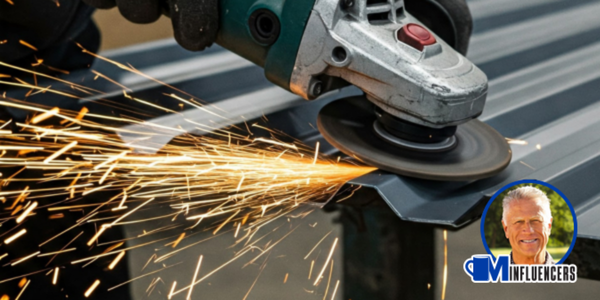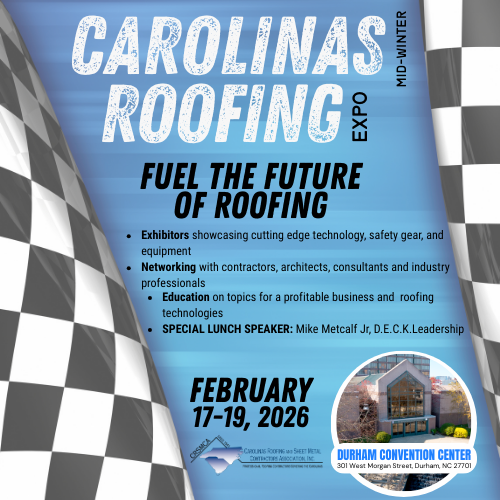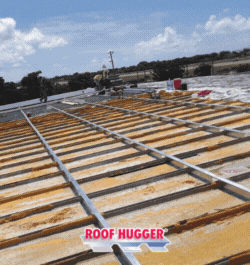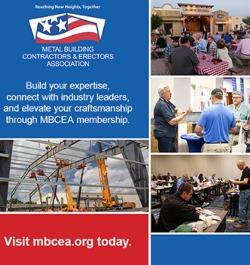UP TO THE MINUTE
Expanding through specialization
October 14, 2025 at 12:30 p.m.MCS Influencer John Kenney says adapting with skill and strategy is key to leading an evolving roofing and construction market forward.
In the roofing and construction trades, growth doesn’t always come from getting bigger, but from getting sharper. Many contractors try to expand by adding more crews or chasing new territories. However, specializing in the metal construction market is one of the most innovative and sustainable ways to grow today. Custom fabrication, architectural design work and decorative or structural metal systems open the door to higher-margin projects, repeat clients and a reputation that sets you apart from the competition.
Metal has become one of the fastest-growing segments in construction because it blends strength, sustainability and style. From standing seam roofs and wall panels to architectural accents and complete custom builds, clients ask for more creative metal solutions than ever. Contractors who can deliver them don’t just win jobs, they become go-to partners for architects, developers and owners who want design flexibility and performance that lasts.
The opportunity is there, but the key is to approach it strategically. Adding specialized metal services isn’t something you bolt on overnight; you build it into your operation.
Start by understanding your market. Look around your region and identify who’s already doing metal work and where the gaps are. Are commercial clients asking for custom fascia, soffit, or wall systems? Are residential customers looking for modern metal roofs that hold up in severe weather? Maybe your area grows in agricultural or industrial builds, where pre-engineered metal buildings are the standard. Once you know where demand trends, you can tailor your offering.
Next, take a hard look at your internal capabilities. Metal construction requires precision, skill and the right equipment. If you’re going to get into fabrication or architectural detail work, you’ll need trained sheet metal mechanics, quality machinery and a solid understanding of architectural drawings. That might mean investing in a brake, shear, roll former, or plasma cutter. More importantly, it means investing in people because skilled metalworkers are the ones who turn designs into results.
Start small. Take on projects that push your team further without overwhelming your resources. Partner with a local fabricator if you need help at first. As your experience and comfort level grow, you can bring more fabrication in-house. Over time, you’ll reduce your costs and gain control over production schedules and quality. That control becomes a significant selling point when dealing with owners or architects who expect precision and accountability.
Metal also opens the door to collaboration with the architectural and design community, where contractors can stand out. Architects love working with contractors who understand metal's structural side and creative potential. When you can talk their language about panel profiles, finishes and installation details, you build trust. They’ll bring you in earlier in the design process, which means you’re helping shape the project instead of just bidding. That’s where you find your most profitable work.
Adding custom metal capabilities can also strengthen your existing relationships. If you’re already doing roofing, offering metal trim, wall systems, or architectural canopies gives your clients one trusted source instead of several subcontractors. It streamlines coordination, improves margins and positions you as a more complete solution provider.
Of course, expanding into this space takes more than tools and training; it takes marketing and reputation. Don’t just tell people you now offer metal services. Show them. Take photos of completed work, highlight custom details and share before-and-after shots demonstrating your craftsmanship. Attend trade shows, post on social media and build relationships with architects and general contractors who focus on high-end design. The more you showcase your expertise, the more opportunities you’ll attract.
Metal construction is also a great way to align with sustainability trends. Metal panels are durable, recyclable and energy-efficient. When you understand how to integrate these benefits into your proposals explaining reflectivity, insulation performance and long-term cost savings, you’re speaking to what today’s building owners care about. Sustainability isn’t just a buzzword anymore; it’s a business advantage.
There’s another benefit to specializing: it helps with workforce retention. Skilled tradespeople like to be part of something that challenges them. When your company takes on detailed metal projects, your employees have opportunities to learn new skills and take pride in higher-level work. It builds loyalty and gives them a sense of craftsmanship that goes beyond everyday production roofing.
At the end of the day, growing through specialization is about depth, not just scale. You don’t have to compete with the biggest contractors in volume when you can compete on expertise. Metal construction lets you do just that; it sets you apart, builds your reputation and opens the door to more profitable, creative work.
If you want to future-proof your business, start learning everything about custom metal systems. Partner with trusted manufacturers, train your crews and invest in the tools that expand your offerings. The roofing and construction market is evolving; those who adapt with skill and strategy will lead it forward.
John Kenney is the CEO of Cotney Consulting Group. See his full bio here.
Recommended For You

In order to succeed, you have to grow
Read More ...
Cashflow in the cut: The hidden value of metal specialization
Read More ...















Comments
Leave a Reply
Have an account? Login to leave a comment!
Sign In